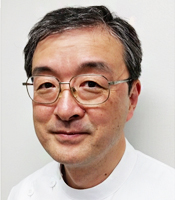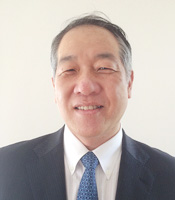![]()
To participants of the 2nd Sapporo Conference for Palliative and Supportive Care in Cancer
The 2nd Sapporo Conference for Palliative and Supportive Care in Cancer, which attracted over 750 participants from 12 countries, is now closed. We owe the success of the conference to your participation and support, for which we offer our most sincere thanks.
After the conference, we received many positive comments from participants on how much they were able to learn regarding palliative oncology. We also received a good deal of praise from the guest speakers regarding the unparalleled excellence of the conference organization. The organizers are particularly gratified that were able to provide this opportunity for learning. I would like to take this opportunity to thank everyone involved.
Through this conference we have been able to gain much from clinicians and researchers working on the front-line of medicine around the globe, making it a particularly valuable experience. For this reason, I have a request for all participants. I would like everyone to carry home with them the lessons learned at this conference, to study them more thoroughly and to help disseminate them. I believe that this will lead to the further penetration of the concept of palliative oncology though both Asia and around the globe. I also believe that the lessons learned here can give rise to new ideas and areas of research. Let’s present this new research to the world. There can be no greater pleasure for us than that the development of our clinical and research work can lead to the future happiness of patients and their families.
The next conference will be held under the leadership of Dr. Terui, and I would like to continue communication with you all in order to make it even more successful event. Please look out for updates on the conference schedule and content as they are uploaded on this homepage.
I wish you all health and success in your future work, and look forward to meeting you all again in Sapporo.
The 2nd Sapporo Conference for Palliative and Supportive Care in Cancer, which attracted over 750 participants from 12 countries, is now closed. We owe the success of the conference to your participation and support, for which we offer our most sincere thanks.
After the conference, we received many positive comments from participants on how much they were able to learn regarding palliative oncology. We also received a good deal of praise from the guest speakers regarding the unparalleled excellence of the conference organization. The organizers are particularly gratified that were able to provide this opportunity for learning. I would like to take this opportunity to thank everyone involved.
Through this conference we have been able to gain much from clinicians and researchers working on the front-line of medicine around the globe, making it a particularly valuable experience. For this reason, I have a request for all participants. I would like everyone to carry home with them the lessons learned at this conference, to study them more thoroughly and to help disseminate them. I believe that this will lead to the further penetration of the concept of palliative oncology though both Asia and around the globe. I also believe that the lessons learned here can give rise to new ideas and areas of research. Let’s present this new research to the world. There can be no greater pleasure for us than that the development of our clinical and research work can lead to the future happiness of patients and their families.
The next conference will be held under the leadership of Dr. Terui, and I would like to continue communication with you all in order to make it even more successful event. Please look out for updates on the conference schedule and content as they are uploaded on this homepage.
I wish you all health and success in your future work, and look forward to meeting you all again in Sapporo.
25 June, 2017
Hideki ONISHI
Chairman
2nd Sapporo Conference for Palliative and Supportive Care in Cancer
![]()
To whom it may concern,
I have been appointed as the chairperson of the 2nd Sapporo Conference for Palliative and Supportive Care in Cancer. I feel a heavy responsibility to serve as the chairperson of such an important conference.
There has been marked progress in oncology in recent years. The advancement of surgery, pharmacotherapy, and radiotherapy has extended the life prognosis and improved the QOL. Progress in palliative medicine and psycho-oncology has significantly contributed to the alleviation of pain. However, the organic unification of these fields has not yet been accomplished to contribute to the welfare of patients and their families. Health care professionals including myself have a mission to make the best of our wisdom to help patients and their families lead a better life. As our future challenge, it will be necessary to integrate those fields and promote the unified field. Palliative oncology has become increasingly important as a multidisciplinary approach to integrate the different fields.
The SCPSC was established to accomplish this goal. The 1st SCPSC was chaired by Professor Kunihiko Ishitani, who has been committed to the development of palliative oncology. The presentations delivered and discussions held in the first conference have significantly contributed to progress in palliative oncology, and the 2nd SCPSC will be held to further promote its advancement.
The conference will invite the world’s leading health care professionals, and they will deliver lectures on the latest findings and actively exchange their opinions. Seminars for specialists are also scheduled to be held. Programs for the seminars are currently being developed.
Cancer is high on lists of the causes of morbidity and mortality in many countries. There are still significant numbers of cancer-related problems to be addressed. We believe that the SCPSC will serve as a basis for health care professionals invited from across the world to deepen their knowledge and seriously discuss with each other to improve the lives of patients and their families. The roles of individual researchers are essential to accomplish this goal. We sincerely look forward to your participation.
I have been appointed as the chairperson of the 2nd Sapporo Conference for Palliative and Supportive Care in Cancer. I feel a heavy responsibility to serve as the chairperson of such an important conference.
There has been marked progress in oncology in recent years. The advancement of surgery, pharmacotherapy, and radiotherapy has extended the life prognosis and improved the QOL. Progress in palliative medicine and psycho-oncology has significantly contributed to the alleviation of pain. However, the organic unification of these fields has not yet been accomplished to contribute to the welfare of patients and their families. Health care professionals including myself have a mission to make the best of our wisdom to help patients and their families lead a better life. As our future challenge, it will be necessary to integrate those fields and promote the unified field. Palliative oncology has become increasingly important as a multidisciplinary approach to integrate the different fields.
The SCPSC was established to accomplish this goal. The 1st SCPSC was chaired by Professor Kunihiko Ishitani, who has been committed to the development of palliative oncology. The presentations delivered and discussions held in the first conference have significantly contributed to progress in palliative oncology, and the 2nd SCPSC will be held to further promote its advancement.
The conference will invite the world’s leading health care professionals, and they will deliver lectures on the latest findings and actively exchange their opinions. Seminars for specialists are also scheduled to be held. Programs for the seminars are currently being developed.
Cancer is high on lists of the causes of morbidity and mortality in many countries. There are still significant numbers of cancer-related problems to be addressed. We believe that the SCPSC will serve as a basis for health care professionals invited from across the world to deepen their knowledge and seriously discuss with each other to improve the lives of patients and their families. The roles of individual researchers are essential to accomplish this goal. We sincerely look forward to your participation.
Hideki Onishi
Department of Psycho-Oncology
Saitama Medical University International Medical Center

![]()
I am pleased to accept the role of co-chair of the 2nd SCPSC, and would like to provide my full support to conference chair Prof. Hideki Onishi to ensure a successful conference. The 1st conference was organized in 2014 by Dr. Kunihiko Ishitani, President of the Higashi Sapporo Hospital, as part of his passion for palliative care. This 1st conference was particularly popular, with 700 guests from 22 countries attending, and requests for a 2nd conference have now led us to this point. I feel considerable pressure in organizing this conference due to the great expectations from all involved; however, I am determined to provide highly interesting and useful content and have now begun the necessary preparations.
Recently, although there has been much emphasis on the need for “palliative care from an early stage” or “palliative care from initial diagnosis,” it seems that some confusion remains from a clinical perspective. The reasons for this include medical oncologists who make a specialty of medical therapy but do not have time for palliative care, palliative care specialists who have no interest in oncology, and surgeons who lead the way in treatment with anticancer agents but remain ignorant of medical oncology and palliative care. Due to this situation, many professionals in a clinical setting find themselves groping in the dark for answers to the basic questions of when? where? who? what? and how? with regard to “palliative care from an early stage”. One response to this can be seen in the concept of palliative oncology, developed in the US and Europe, in which doctors proficient in both medical oncology and palliative care play an active role.
In the next conference, I would like to focus on above issue, taking the theme of how to implement high-quality practices in “palliative care from an early stage”. In order to meet everyone’s expectations in this, I want to set up a session to deal with utility in the clinic of the future and hints for future research.
I look forward to seeing you all in Sapporo in the summer of 2017.
Recently, although there has been much emphasis on the need for “palliative care from an early stage” or “palliative care from initial diagnosis,” it seems that some confusion remains from a clinical perspective. The reasons for this include medical oncologists who make a specialty of medical therapy but do not have time for palliative care, palliative care specialists who have no interest in oncology, and surgeons who lead the way in treatment with anticancer agents but remain ignorant of medical oncology and palliative care. Due to this situation, many professionals in a clinical setting find themselves groping in the dark for answers to the basic questions of when? where? who? what? and how? with regard to “palliative care from an early stage”. One response to this can be seen in the concept of palliative oncology, developed in the US and Europe, in which doctors proficient in both medical oncology and palliative care play an active role.
In the next conference, I would like to focus on above issue, taking the theme of how to implement high-quality practices in “palliative care from an early stage”. In order to meet everyone’s expectations in this, I want to set up a session to deal with utility in the clinic of the future and hints for future research.
I look forward to seeing you all in Sapporo in the summer of 2017.
Saitama Medical University International Medical Center
Palliative Care Department
Takao TAKAHASHI













